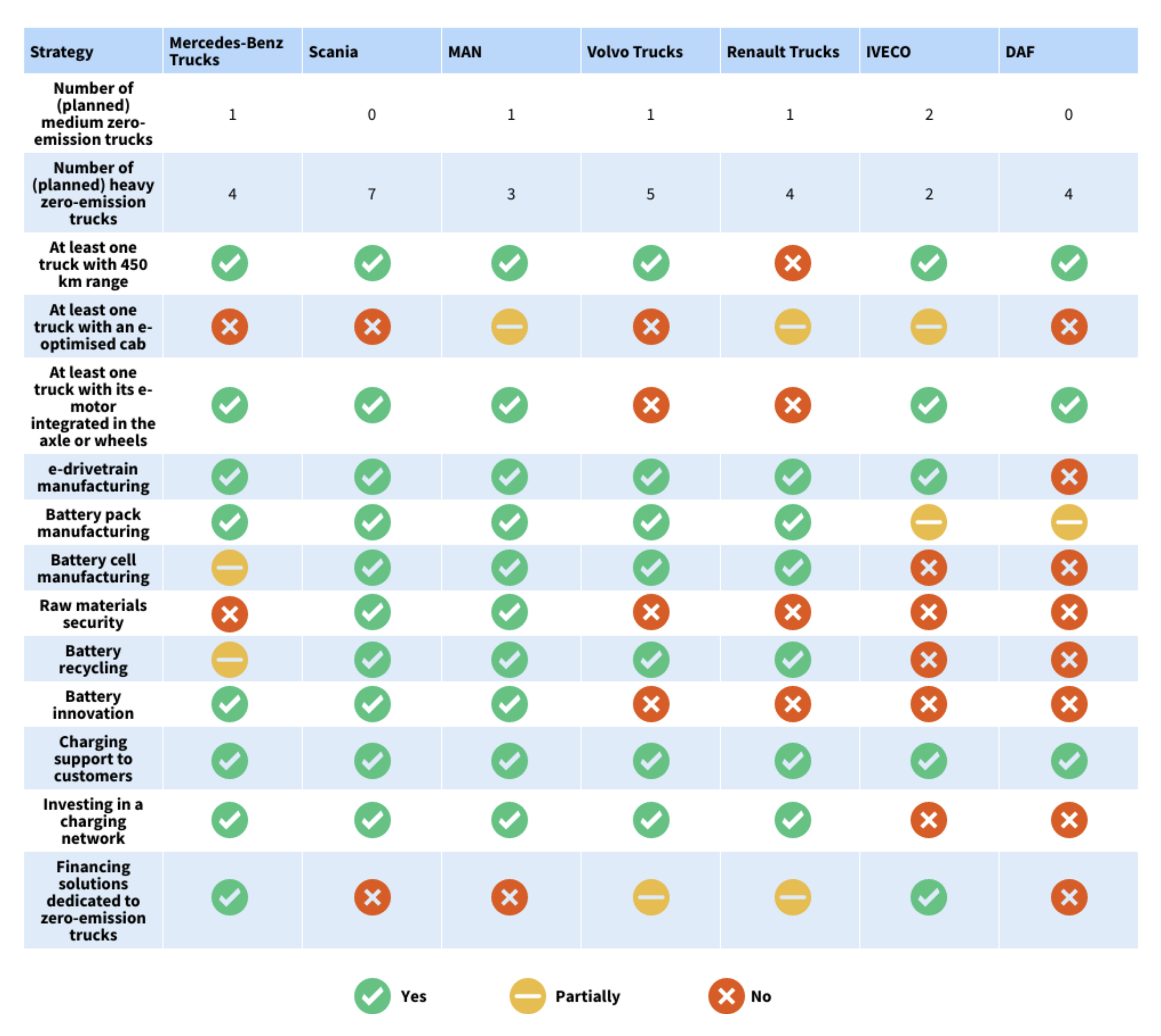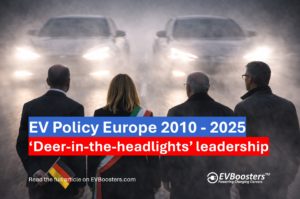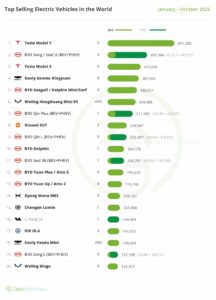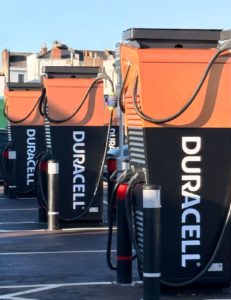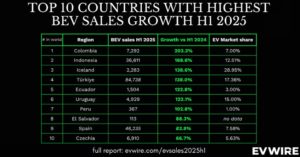Mercedes-Benz Trucks aims high with 100% ambition, but their industrial strategy falls short at 74%. This raises concerns about their readiness to meet voluntary targets.
Scania, part of the TRATON group, leads the way in zero-emission trucks. Scoring above 70 points, Scania boasts a strong industrial strategy, a diverse lineup of heavy zero-emission truck models, a comprehensive battery value chain, charging infrastructure, and financing strategy. They are well-positioned as industry leaders.
Also part of the TRATON group, MAN scores 75% in both ambition and strategy. Their voluntary announcements align with their industrial strategy, as evidenced by their development of a comprehensive lineup of zero-emission truck models. MAN is on track to meet their zero-emission targets.
Volvo Trucks and Renault Trucks, part of the Volvo Group, have similar mid-table readiness scores. They need to improve their industrial strategies by integrating e-motors into axles or wheels and expanding their zero-emission truck model lineup. Further development is required for their prototype trucks with e-optimized cabs or a 450-km range.
IVECO takes a different approach, prioritizing alternative fuels and technologies over battery-electric trucks. While this has advantages, it poses challenges in meeting long-term zero-emission targets. IVECO should consider incorporating battery-electric trucks to align with industry trends and customer demands.
Unfortunately, DAF lags behind with the weakest performance among European truck manufacturers. With no public zero-emission truck target for 2030 and the lowest score on the battery value chain, DAF needs to improve its strategies, set clear targets, and focus on zero-emission truck development to catch up with industry frontrunners.
In summary, European truckmakers’ strategies for transitioning to zero-emission trucks vary. While some demonstrate strong ambition and comprehensive strategies, others have room for improvement. The industry as a whole is embracing zero-emission technologies, necessitating truck manufacturers to adapt and align their strategies with the demands of sustainable transportation.
Source: Ready or not | Transport & Environment
